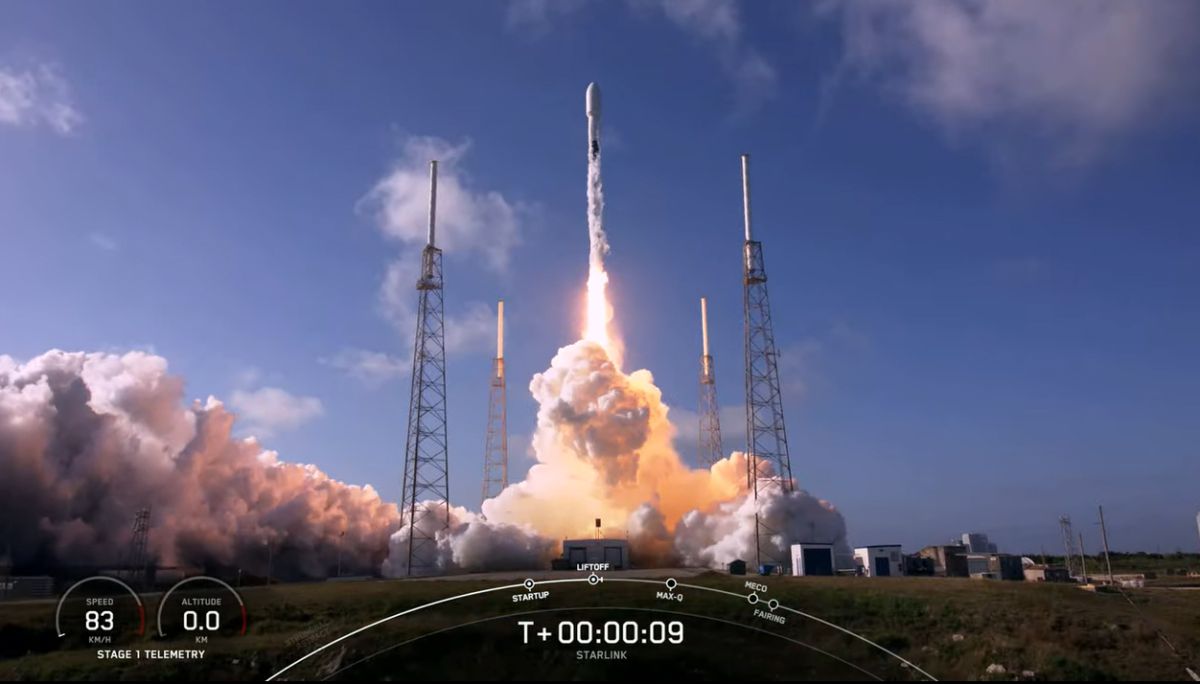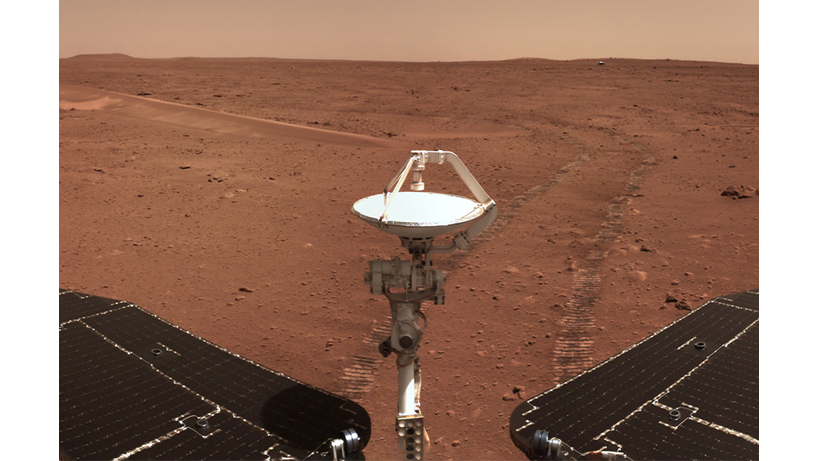This new NASA Hubble Space Telescope image spotlights the giant elliptical galaxy, UGC 10143, at the heart of galaxy cluster, Abell 2147.
Read MoreMonth: May 2022
Watch Rocket Lab catch a falling booster with a helicopter (video)
Rocket Lab has given us new views of its epic booster snag earlier this month. The company used a helicopter to catch the falling first stage of its two-stage Electron rocket on May 2, during a mission called “There And Back Again” that delivered 34 satellites to orbit. On Wednesday, Rocket Lab posted on Twitter a video of the historic catch. It gives us, among other views, shots from the Sikorsky S-92 helicopter as it eased within range of the booster to snag its parachute line with a hook. “Now…
Read MoreMilky Way vs M87: EHT photos show 2 very different supermassive black holes
Three years ago, scientists used a telescope the size of Earth to produce the first-ever image of a black hole. Now, they’ve done it again — this time, closer to home, and of a very different invisible behemoth. The Event Horizon Telescope (EHT) has now produced images of two supermassive black holes: the one in the center of a galaxy called M87 and the one at the center of our own galaxy, the Milky Way. In the process, the hundreds of scientists involved in the endeavor have gotten their first…
Read MoreSpaceX to launch Starlink satellites, land rocket Friday: Watch live
SpaceX plans to launch another big batch of its Starlink internet satellites and land a rocket on a ship at sea on Friday (May 13), and you can watch the action live. A two-stage Falcon 9 rocket carrying 53 Starlink spacecraft is scheduled to lift off from Vandenberg Space Force Base in California on Friday at 6:07 p.m. EDT (2207 GMT; 3:07 p.m. local California time). If all goes according to plan, about nine minutes after launch, the Falcon 9’s first stage will come back to Earth for a pinpoint…
Read MoreThis Week’s Sky at a Glance, May 13 – 20
XXXXXXXXXXXXXXXXXXXXXXXXXXXXXX The post This Week's Sky at a Glance, May 13 – 20 appeared first on Sky & Telescope.
Read MoreAstronomers Unveil Image of the Milky Way’s Central Black Hole
Using a worldwide array of telescopes, the Event Horizon Telescope team has given us our first look at Sagittarius A*. The post Astronomers Unveil Image of the Milky Way’s Central Black Hole appeared first on Sky & Telescope.
Read MoreColorado Students to Hear from Astronauts Aboard Space Station
Students from Boulder, Colorado, will have an opportunity next week to hear from American and European astronauts aboard the International Space Station.
Read MoreCoverage Set for NASA’s Boeing OFT-2 Briefings, Events, Broadcast
NASA will provide coverage of the upcoming prelaunch, launch, and docking activities for the agency’s Boeing Orbital Flight Test-2 (OFT-2) to the International Space Station.
Read MoreEarth from Orbit: NOAA Debuts First Imagery from GOES-18
NOAA shared the first images of the Western Hemisphere from its Geostationary Operational Environmental Satellite-T (GOES-T), later designated GOES-18.
Read MoreWater may have been on Mars much more recently than scientists thought, China’s rover suggests
Evidence is growing that Mars, now cold and dry, had liquid water running on its surface much more recently than previously thought. Scientists have long believed that Mars was wet around 3 billion years ago, during the planet’s Hesperian period, then lost much of its water. But the a new study presents evidence of water activity from just 700 million years ago, well into the current Amazonian period, posing a new puzzle to crack about the Red Planet and its history. The new study is based on data from China’s…
Read More
